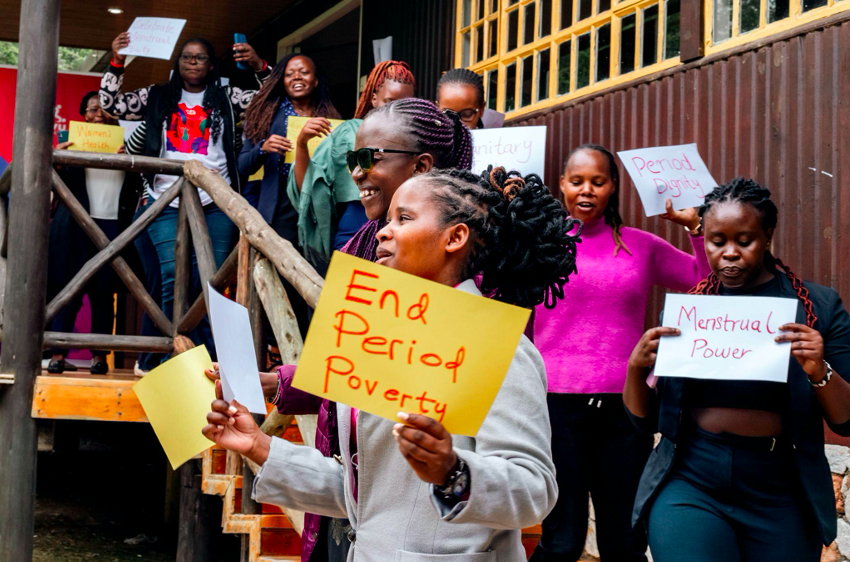Activists in Nairobi during one of the demos against period poverty.
Accessing sanitary pads became a desperate
survival game for Jemimah*. She became a mother at just 16 and was forced to
drop out of school in Form Two. Her period became her most painful memory.
“I had no one to turn to for sanitary
towels. My boyfriend used to buy me pads, but in exchange for sex”.
She buckled under pressure from her
boyfriend because she wanted to stay in school. It was the only way for her to
avoid the shame of staining her uniform or staying home for a week in her
village in Kisumu. But the situation spiraled. She became pregnant, dropped out
of school, and the boyfriend who once provided her with pads disappeared.
She now struggles to raise her child alone,
wishing that this cruel fate hadn’t befallen her just because she couldn’t afford
sanitary pads.
Stories like Jemimah’s reflect the harsh
realities that moved nearly 10,000 women and girls to participate in a shocking
nationwide survey on menstrual products in Kenya that was released on World
Health Day 2025.
The architects of this survey were four women change leaders from the Nguvu
Collective, who lived and witnessed the lack of basic human rights for
menstruating women and girls. Nguvu Change Leaders Amina Guyo, Frida Karani,
Harriet Afandi, and Veronica Mwende had seen girls around them using the most
unhygienic menstrual products – rags, blankets, pieces of mattress, tissue
paper, cotton wool, leaves, and even cow dung. They just couldn’t stay silent!
Armed with the support of over 15
grassroots organisations and activists from 45 counties of Kenya, and backed by
the Kenya Women Parliamentary Association (KEWOPA), they set out on a mission
to gather perspectives from Kenyan women & girls on why affordable,
quality, and sufficient sanitary pads matter.
This survey – “Echoing Voices From The
Grassroots On Dignified Period For All”- is a one-of-its-kind attempt to centre
voices of menstruators in policy making around menstrual products. Why is this
survey unique?
●
50 per cent of the respondents of this
survey are from rural areas, and nearly 10% are women and girls with
disabilities. These are two audiences that are almost always excluded. This
survey included their perspectives prominently.
●
There is a huge disconnect
between policy making and lived realities. Menstruators do not have a say in
even basic choices like – “How many pads do I need per month?”, “What kind of
sanitary pad makes me breathe easy during my period?”, “Which pads in the
market are affordable for me?”. This survey attempted to change that and
brought their voices to centrestage.
●
Shockingly, “Sexual Abuse for
Sanitary Pads” has emerged as a continuing reality. This survey issued an
urgent Call to Action for these gender rights violations to end.
For policymakers, the civil society, and
the private sector, one message resounds clearly throughout this survey: Kenya must move beyond
fragmented interventions. We need to establish a sustainable, rights-based
approach to menstrual health – one that guarantees quality, affordability, and
sufficiency of menstrual products for all. That is the only way we can
successfully tackle period poverty!
(*Name changed to protect identity)
Durga
Nandini is co-founder of Nguvu Collective.


